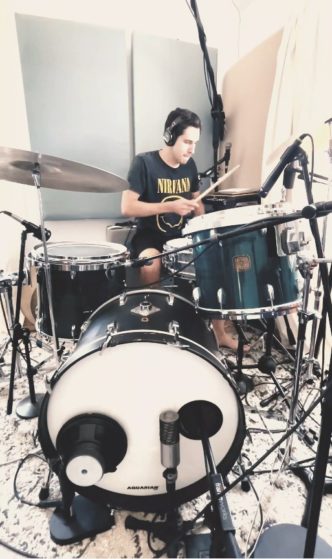Funny thing about William Steffey. I just can’t seem to get away from the guy. Or, at least his CD. It’s everywhere – first he (Steffey himself) sends me a press packet and then I win a CD prize pack from a radio station and his is in the mix. And no lie, I go down to visit my friend over Easter and she has it. Not only does she have it, she says she loves it. So, it’s like peer pressure. I feel like I ought to do a review. Like I have no choice. It’s not such a bad thing, peer pressure. At least William Steffey doesn’t kill brain cells.
According to his official Web site, 2001’s self-produced Roadstar is Steffey’s first album in “a coon’s age,” which I guess implies that he’s been around for more than a couple of coon’s ages, (and how long is that, I wonder?) which makes me wonder where he’s been. I actually tried researching the guy with minimal results, which may be why I’m just hearing about him recently. Perhaps he’s one of those artists who doesn’t care for exposure? I didn’t know that there was such a thing. Not that I particularly mind – it’s interesting stuff. He describes his sound as “Sade meets Tool.” Yeah, I wondered what that sounded like too.
After listening to all eleven tracks, however, I guess I have a better idea. It’s not without its charm, but I would rather read his lyrics as poetry than hear them set to the backdrop of Steffey’s confused melodic progressions (he just sort of says the words, rather than trying to fit them all into a polished melody). Take, for example, Roadstar’s opening track, “Ashland,”(in which “city litter swirls making the skin of the invisible man” is just one line), which is introduced by a sort of lounge reggae hook reminiscent of No Doubt’s earlier material. Steffey’s voice, which is sometimes distorted and leaves something to be desired, is obviously more on the Maynard side of things, although I personally wouldn’t credit it with being as haunting or melodic. His vocals are closer to those of Ben Folds — not breathtaking, but poignant enough in its purpose. He’s obviously passionate about his music, though, and you can tell.
“Healing No. Four” is perhaps the most promising as a single. If you don’t listen to the abstract lyrics, you’d think Steffey was taking a break from the general darkness of the album. But as I sit here with the lyric booklet in front of me — “throwing pictures out of moving windows can’t take the place of murder.” Poetic, yes. But a cohesive song? It’s like when you’re five, and you sing about nothing in particular but fail to compose anything that makes musical sense. He’s very observational, but it’s so abstract. It’s almost a shame that he ruins it with musical composition.
As the CD progresses, Steffey lets his guard down and allows himself to be fun. “City of Heroes” suggests that Steffey is willing to give up crooning every once in a while for the greater good. As he sings about mastering the metaphor game and how nothing on earth is the same, I’m reminded of Marvelous 3 or Deep Blue Something. His final query of “When you hate the world do you still hate me?” exposes that even Steffey’s 50-cent words and poetic ramblings need love.
“Diabetic” relays of a story of a girl named Chelsea whom “everyone loves” in a vocal lounge attempt. It’s definitely the most catchy on the album and is an appropriate predecessor of Steffey’s instrumental, “World’s Tallest Building.”
“Snowangels” is an impressive electronic display, though the guitars introduce themselves once more as he belts out the first few lyrics. Not unlike the rest of the album, it’s as though Steffey can’t decide which direction. Each song should take, and so he throws in every instrument and a synthesizer. But you know what happens when you mix all the colors together. You get brown.
The last track, “Roadstar” revisits the second, and lyrics are minimal for once, and performed by a mechanical female voice who speaks of robots.
I have to wonder who William Steffey’s trying to reach. He isn’t attempting to reach the ranks of pop stardom (he obviously doesn’t care to, since he’s just coming out of the woodwork), seeing as the music would just go over heads. Steffey’s a smart guy, and he opts to forgo any fancy musical stylings. If anything, I would deem the album as experimental. It’s certainly not the weirdest, but that’s where it’s headed. Steffey ought to just let go, for there’s nothing more annoying in music than artists who don’t understand the value of consistency. Don’t get me wrong — I appreciate diversity as much as the next listener and I’m sure Steffey understands his own music, but there’s hardly any cohesiveness to the album as a whole.
-Min Shepard



